Revolutionary capital-intensive AI technologies and robots are spreading fear of lay-offs and part-time employment for workers tardy about re-skilling and upgrading their skills. The message is going out to all employees from executive suites downwards: upskill or else writes Dilip Thakore
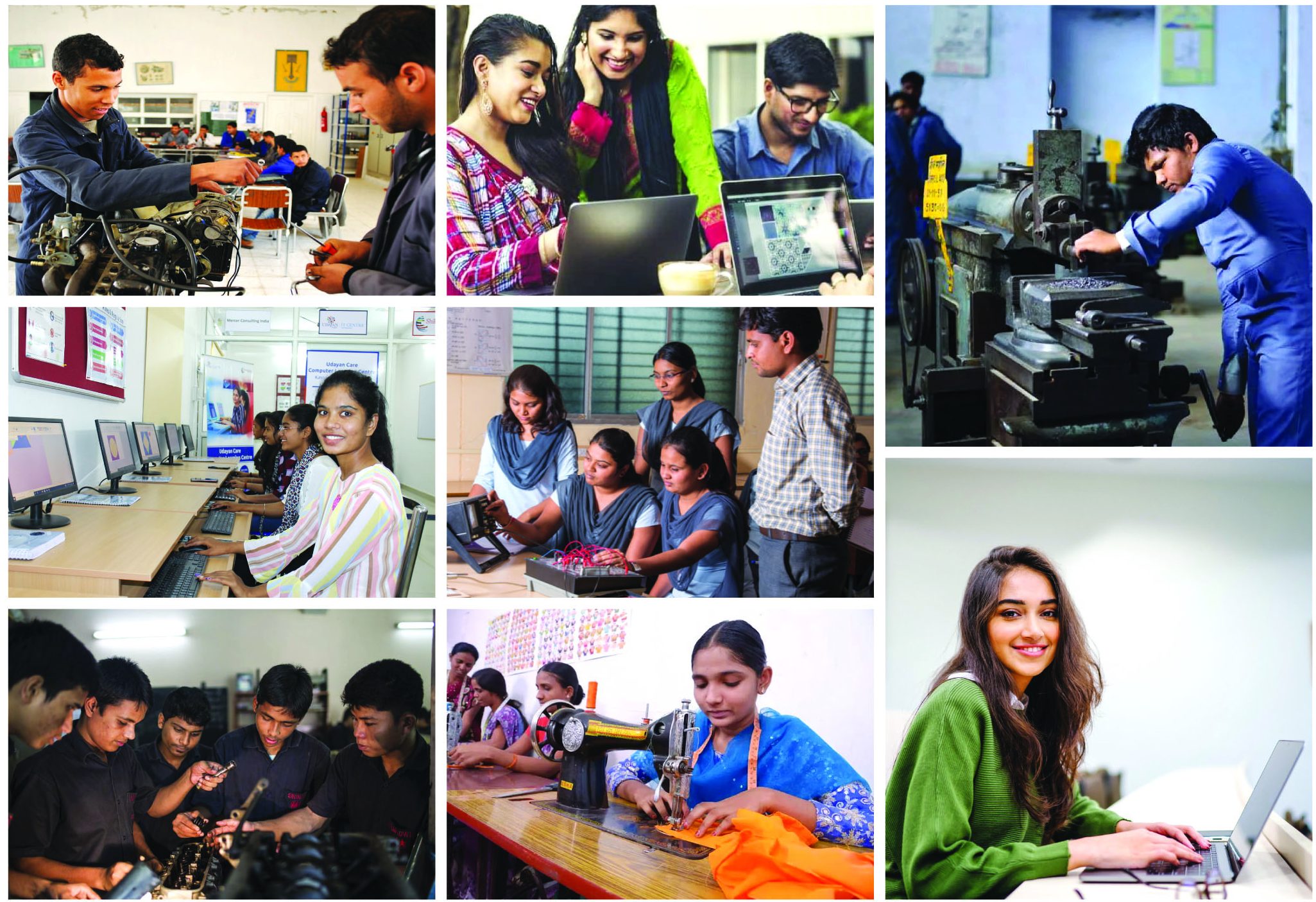
Vocational education & training: substantial rewards for upskilling early movers
With the invention of a bewildering mix of new technologies — AI, machine learning, blockchain, robotics, bio-medicine, green energy, EV (electric vehicles) and new sustainable climate technologies — making headlines in the print, electronic and social media, pervasive fear of redundancy and obsolescence is spreading countrywide. In corporate offices across the country, managements are discussing the impact of disruptive new technologies as they struggle to remain competitive with domestic and off-shore competitors in markets slowed by global inflation and falling consumer demand. The message is going out to all employees from executive suites downwards: upskill or else. Revolutionary capital-intensive AI technologies and robots are spreading fear of lay-offs and part-time employment for workers tardy about re-skilling and upgrading their skills.
Speaking to a Times of India reporter (June 12), Saurabh Govil, head of human resources at IT behemoth Wipro Ltd, warned that in the current business environment of economic slowdown and lower hiring, IT professionals should focus on upskilling. According to Govil, the IT and ITES (IT enabled services) industry has reached a level of “sanity” on the issue of salary increases. Increments will depend on individuals’ reskilling and upskilling themselves. “In 2021, people had a lot of opportunities, our attrition was high and people were being hired at 30 percent premiums. That will not happen now. Now, niche skills like generative AI and cybersecurity will get a premium,” said Govil.
Govil’s remarks are indicative of corporate sentiment across the spectrum of India Inc. With competition and inflation exerting pressure on margins, top managements have to improve employee productivity and can’t afford to have change-resistant employees on their payrolls. The best companies are signing up their most promising managers for company-paid executive programmes offered by top-ranked B-schools in India and abroad. Less favoured managers are expected to sign up for after hours and week-end programmes to remain contemporary and acquire additional skills and apply them pronto, to avoid being sidelined or sent away to remote regional offices. This sudden fear of obsolescence is being experienced even on the factory shopfloors of Indian industry.

Ravichandran: beneficial development
“Across India Inc, especially in large companies confronted with the prospect of international competition, the new mantra is more with less. Although they pay high salaries, they are downsizing and expect managers to be multi-skilled and ahead of the learning curve in adopting new technologies. Therefore, savvy, on-the-ball professionals in IT and ITES companies are enrolling with edtech companies to become acquainted with new products and processes so they can change domains if necessary. Moreover 21st century young professionals are totally different from their predecessors who were content with steady progress up the corporate hierarchy. They appreciate the necessity of acquiring new skills to remain in the race. Most of them are also anxious to acquire skills necessary to build assets and to upskill to follow their passions — going into farming, education. Their good example is worth following. My advice to people of all ages is to never stop learning, to see the big picture of your industry and anticipate changes in the offing. Therefore, if there is an upskilling panic spreading across the country, that’s a beneficial development,” says Hema Ravichandran, an alumna of IIM-Ahmedabad and former global HRD head of the blue-chip Infosys Technologies, and currently a Bangalore-based HRD consultant.
The benefits of upskilling in new age industries are immediate and rewarding for early movers. According to an excellent feature in Business Today (July 9), working professionals are signing up in droves with online upskilling edtech providers such as Upgrad, Emeritus, Great Learning, Hero Vired and Scalers. These edtech companies have themselves tied up with top-ranked B-schools to provide business management plus new age skilling programmes such as generative AI, machine learning, data analytics, leadership, of a few weeks to three years duration. Quite obviously, the time has come for upwardly mobile, ambitious professionals to differentiate themselves from plain vanilla MBAs.
The rewards of acquiring new competencies are substantial. According to Mayank Kumar, co-founder of Upgrad, learners for upskilling programmes who sign up when they have a salary of Rs.8 lakh per year, average increments of 50-55 percent on completion of upskilling courses. The website of Hero Vired proclaims average salary hikes of 71.6 percent for finishers. Little wonder there is a mad rush for upskilling programmes in the IT and related industries.
Yet the swelling rush for upskilling courses is not confined to the IT and new tech industries. With cellphones, television, white goods, new age automobiles, electronic devices — scarce commodities in the heyday of neta-babu licence-permit-quota raj which, it’s useful to remember, ended only two decades ago — now ubiquitous, there’s rising awareness that these wondrous goods and gadgets need to be maintained and serviced. With new age consumer products and services having penetrated to tier-II and tier-III towns and cities and even into the rural hinterland, colleges, academies and institutes as also self-styled skilling enterprises are reporting a demand surge for short-term courses from the huge army of India’s unemployed, under-employed and youth eager to maintain and service them.
Fortunately, there’s been good market response to the urgent demand for vocational courses. The Central government’s National Skills Development Corporation (NSDC) has promoted 38 Sector Skill Councils to set standards and draw up curriculums for vocations. Simultaneously, several private universities, notably the Bhopal-based AISECT Group of four universities in Bilaspur (Chhattisgarh), Rabindranath Tagore University in Bhopal (Madhya Pradesh), AISECT University in Hazaribagh (Jharkhand), Dr. C.V. Raman University in Vaishali (Bihar) have also sprung up to reskill and upskill the country’s youth.
“AISECT has partnered with the National Skill Development Corporation to provide skills-based training to 1.3 million lakh youth by 2020. Under this partnership, 12 vocational training academies have been set up that offer over 150 low-cost, high quality university-certified undergraduate, postgraduate, certificate and diploma courses,” proclaims the AISECT Group website.

Chaturvedi: demand surge
For instance, AISECT’s Rabindranath Tagore National University (RTNU) offers 51 skilling programmes under the heads of mechanical, electronics, electricals and communication, civil engineering and computers & IT. Among them: automobile maintenance, refrigeration and air-conditioning, CNC programming and machining; handsets repair; TV and home appliances repair, server management, optical cables splicing, solar technician, water harvesting and management, electrical house wiring, fire safety, disaster management and healthcare waste management. “This year, there has been a surge in admission applications for vocational courses,” says Siddharth Chaturvedi, president of the AISECT Group.
 Favorably, even if belatedly, several vocational training and skilling higher education institutions which like AISECT and RTNU provide the conventional three-year degree programmes, as well as dozens of skilling programmes as electives and short-term diploma programmes, have sprouted across the country. Prominent among them is Centurion University (CU), Bhubaneswar (estb.2010) promoted by visionary educationist Dr. Mukti Kant Mishra, which trains youth to qualify as machinists, fitters, welders, electricians, plumbers, mechanics and retail assistants in the university’s seven Gram Tarang satellite training centres in Odisha, Andhra, Jharkhand and Assam. This path-breaking university was featured as a cover story in EducationWorld way back in 2014 (see https://www.educationworld.in/centurions-40000-score-card/).
Favorably, even if belatedly, several vocational training and skilling higher education institutions which like AISECT and RTNU provide the conventional three-year degree programmes, as well as dozens of skilling programmes as electives and short-term diploma programmes, have sprouted across the country. Prominent among them is Centurion University (CU), Bhubaneswar (estb.2010) promoted by visionary educationist Dr. Mukti Kant Mishra, which trains youth to qualify as machinists, fitters, welders, electricians, plumbers, mechanics and retail assistants in the university’s seven Gram Tarang satellite training centres in Odisha, Andhra, Jharkhand and Assam. This path-breaking university was featured as a cover story in EducationWorld way back in 2014 (see https://www.educationworld.in/centurions-40000-score-card/).
However while AISECT and Centurion universities offer conventional arts, science and commerce, and engineering degree programmes with skills subjects as electives and diploma certificate programmes, Shri Vishwakarma Skill University, Gurgaon (SVSU, estb.2016) whose vision statement unambiguously states that it has “been promoted by the Haryana state government to focus on quality of skill education, aspired by students and admired by industry, nationally and internationally,” is an entirely skilling university. It awards B.Voc degrees in a wide range of disciplines including entrepreneurship, mechanical-manufacturing, banking and finance, mechatronics, public health, hospitality management, production tool and dies manufacturing, and agriculture among other skills.
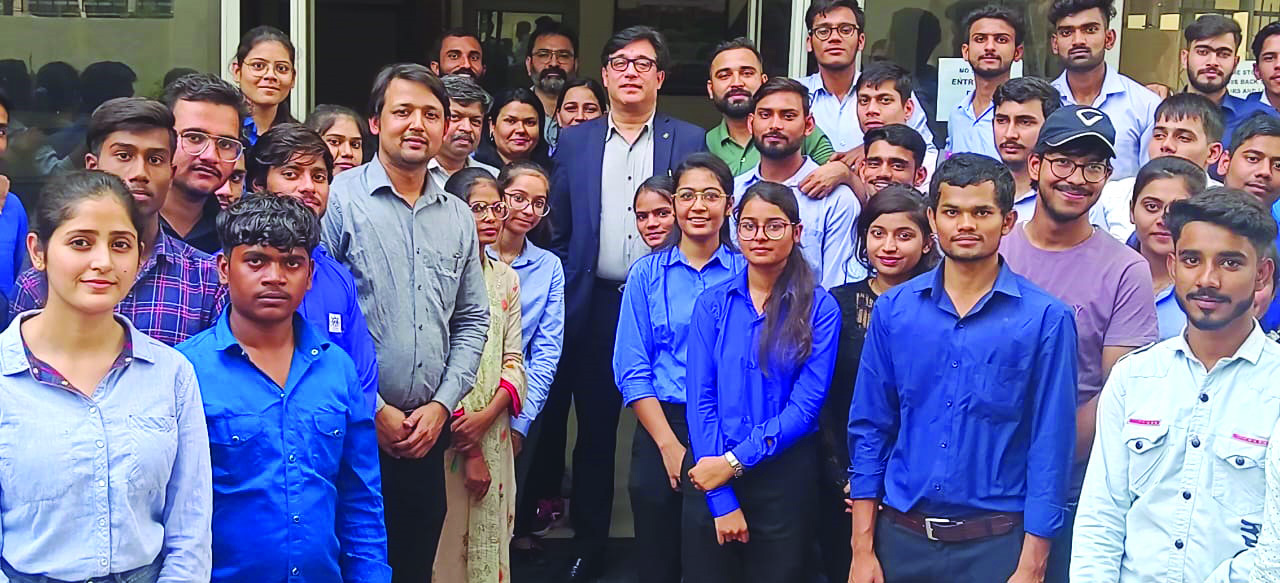
SVSU’s Nehru (centre): national productivity boost
“There’s definitely been a much higher 20-25 percent rush for admission into our programmes this year, especially from youth in tier-II and tier-III towns. And the rush is not only for upskilling in the IT, engineering and white collar industries. Even self-employed people engaged in vocations such as civic plumbing, carpentry, electrical wiring, are signing up for top-up courses. They have realised that their productivity and incomes can rise manifold if they learn to use modern power tools and equipment. Therefore, we accord high importance to recognition of prior learning of truck drivers, healthcare professionals and medical lab technologists who have already learned through informal mentorship. Short-term top-up formal education in a wide range of services is certain to give a huge boost to national productivity and income, and enable us to catch up with China and developed countries by 2047,” says Dr. Raj Nehru, founding Vice Chancellor of SVSU.
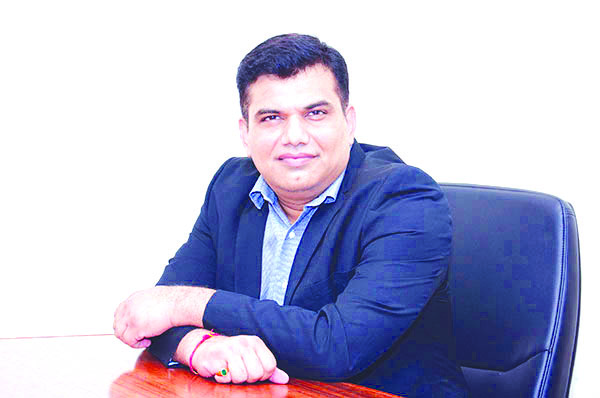
Sharma: redundancy fear
This solution of mass-skilling India’s youth to experience a productivity leap is shared by Dr. Balkishan Sharma, a commerce alum of Mumbai University, IIM-Ahmedabad and Shri JJT University, Rajasthan, promoter-director of the World Academy of Career Programmes, authorized to offer the IB Career-Related Programme (Plus Two) of the International Baccalaureate in India, Nest Academy and Future Varsity, degrees-awarding skills academies. According to Sharma, there’s “a huge surge in demand” for admission into these institutions which offer school-leavers and working professionals value-added subjects such as digital marketing, data analytics, events and sports management, integrative health and dietetics management.
“There is a revolution in education. Students are no longer content with the traditional three-four year degrees. They are anxious to switch to the American-style major and minors system, and also acquire diploma qualifications to become multi-skilled. They are becoming well aware that multi-skilled graduates will have an edge in the employment marketplace Simultaneously, there is a rise in top-up executive education programmes,” says Sharma.
This viewpoint that there is a feverish upskilling sentiment running through the population is endorsed by the weighty opinion of Manish Sabharwal, founding-chairman and president of Teamlease Pvt. Ltd (estb.2000), the country’s premier white and blue-collar personnel staffing company and of Teamlease Skills University, Vadodara (2013). The company provides skilled technicians including accountants, data entry/back office, BPO/customer care, front office/receptionists, hospitality managers, chefs, drivers etc to business enterprises while the university trains and certifies them. Since incorporation, the company has placed 2 million personnel in industry and services and the university has certified 400,000 personnel.
According to Sabharwal, there is a “repair, prepare and upgrade” mindset sweeping across the country. “Traditional unskilled jobs are dead. A new world of work has emerged in which everyone has to learn (additionally) while they learn, learn while they earn and keep learning lifelong. As industry world-over is adopting new AI, machine learning and robotics technologies, there is rising demand for bite-size certification courses as employers are switching from providing lifetime to taxi-cab employment. Unsurprisingly, there is also a surge of demand for shopfloor technicians for vocational training and service sector jobs in Teamlease University and in our jobs placement company,” says Sabharwal, an alum of Delhi University and Wharton School of business management, USA, who has opportunely timed his entry into vocational skills training and employment businesses.
Perhaps even better tidings are that with print media and television including government and political party ads showing prosperous, cheerful farmers, skilling fever is spreading in rural India which although grudgingly hosts 60 percent of the national population, contributes a mere 17 percent of annual GDP. The inescapable truth is that unless there is a huge productivity leap forward in rural India, there’s little chance of the country transforming into a $30-40 trillion economy by 2047 as predicted by Prime Minister Narendra Modi and his chorus. Because of abysmal primary education dispensed by the country’s 1.20 million government schools, two-thirds of them in rural India, the majority of the farming community is still using antiquated tools and equipment dating back several centuries.
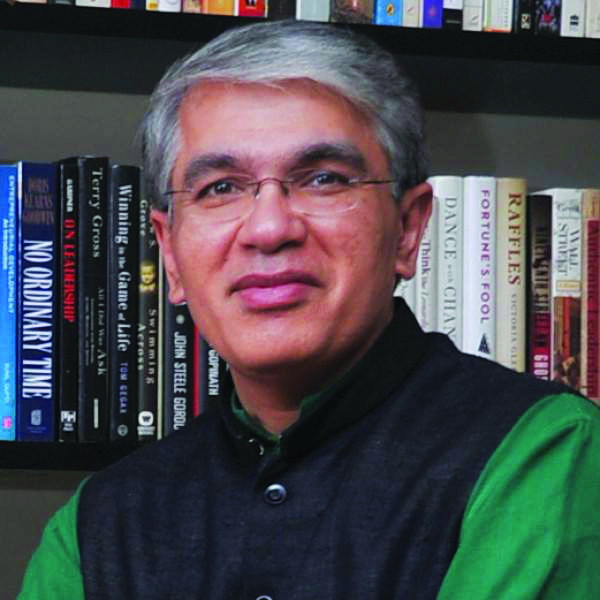
Sabharwal: “repair, prepare & upgrade”
In Punjab and other major foodgrains growing areas, ignorant farmers have desertified large land tracts by over-using urea (instead of optimal NPK mix) while the number of unskilled, unemployed youth is multiplying because of the slow growth of industry, especially labour-intensive MSMEs (micro, small and medium enterprises), which employ 40 percent of the industrial workforce. According to farmers’ leader Sharad Joshi (1935-2015), given globally benchmarked primary and skilling education options, rural India has the capability to “feed the world”. Per-acre foodgrains yields even in India’s bread-basket regions are a mere one-tenth of yields even in the US and France, and one-fifth of China.
Therefore, the compulsions of upskilling are spreading across rural India as well. “We are experiencing a sharp increase in applications for our short-term courses in fertilizer and pesticides usage, soil and water and green house management this year. Simultaneously, there is greater demand for our field extension services. This promises better yields in the coming harvest seasons. Indian agriculture is changing, especially in Gujarat where four new agriculture universities were promoted by the state government in 2004. However, given the population of Gujarat (65 million), and its history of the Amul cooperative movement, the pace of rural upskilling is too slow. This is because the public primary education system is weak. If it is improved, many more youth will step forward to enroll in our skills development programmes which will provide a big boost to rural productivity and production,” explains Dr. Alka Singh, an alumna of Gujarat Agri University, Chaudhury Charan Singh University, Meerut and University of California, who is principal and dean of the Aspee College of Horticulture, Navsari Agricultural University.
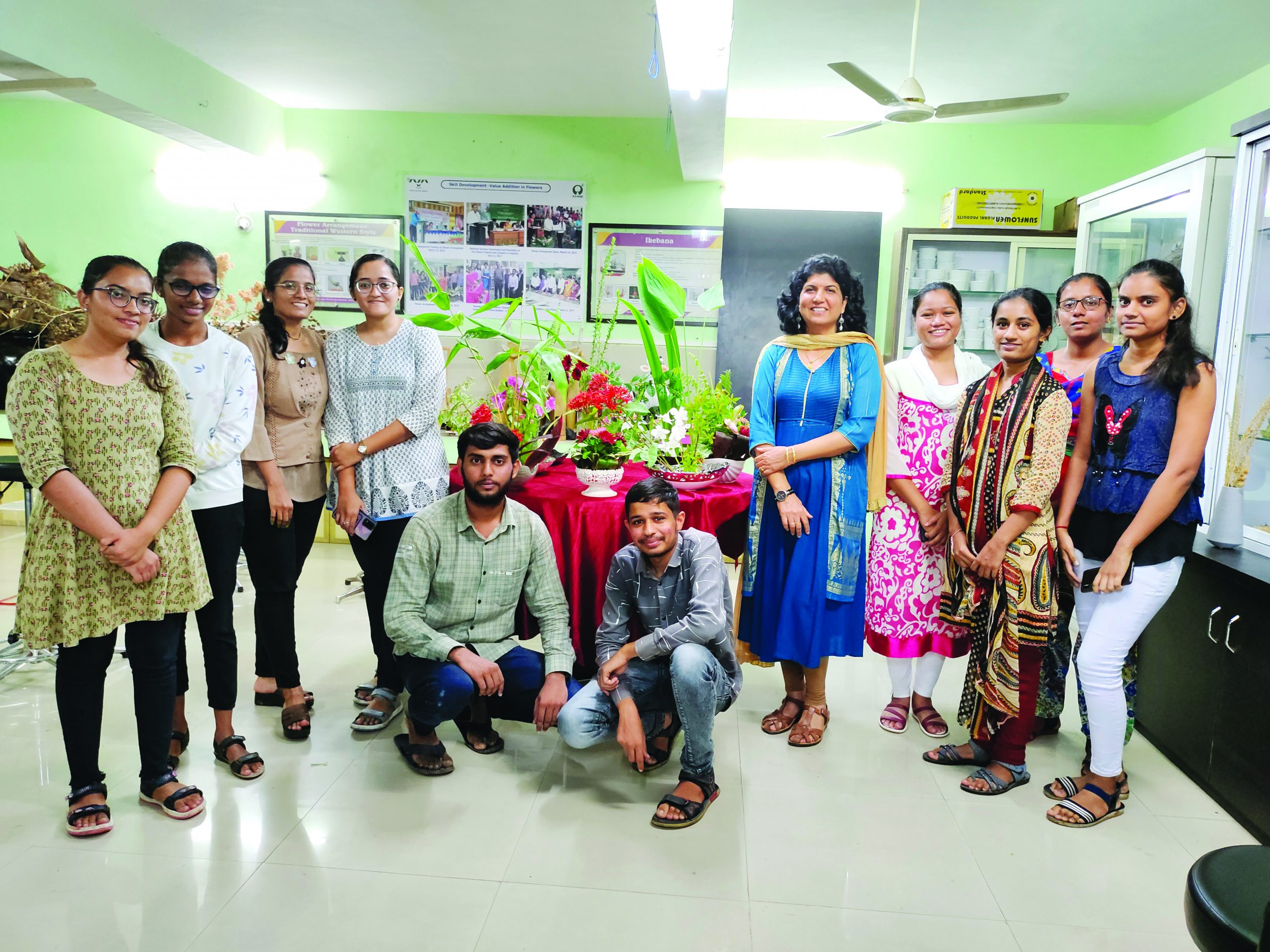
ASPEE College’s Dr. Alka Singh (centre right): food processing industry plea
In particular, Dr. Singh makes a strong plea for the development of India’s horticulture processing industry. “Horticulture produce — fruits and vegetables — are highly perishable and barely 10 percent is processed, a colossal annual wastage. There is a strong case for building a strong food processing industry to reduce the huge annual wastage of horticulture produce,” adds Singh.
To its credit, since it was voted to power at the Centre in 2014 and again in 2019, the BJP government has accorded considerable attention to vocational education and training (VET). For one, the title of the broadly named Union ministry of human resources has been more accurately narrowed down to the Union ministry of Education, and a new ministry for Skills Development and Entrepreneurship was established in 2014, which has launched a plethora of official skills development programmes (see box). Yet the Modi administration and state governments have repeatedly failed to put money where their mouths are. Annual outlays for education (Centre plus states) are stuck in the 3-4 percent of GDP groove despite repeated promises to raise it to 6 percent of GDP (as recommended by the Kothari Commission way back in 1967). Consequently, the number of VET institutes in India at 15,000 has remained static cf. 500,000 in China.
Unfortunately, the ambitious National Skill Development Corporation (NSDC), launched in the new millennium with great pith and moment as a government-private partnership initiative, has proved a damp squib. Authorised to licence private skills education firms as training partners with former Tata Consultancy Services CEO S. Ramadorai as chairman, it has been plagued by several scams and scandals and its certification has lost credibility. Succeeding chairmen drawn from the bureaucracy have been of relatively low calibre. Which is perhaps why Ved Mani Tripathi, the incumbent chair of NSDC who requested — and was sent — a written questionnaire for this feature was “too busy” to respond despite numerous reminders.
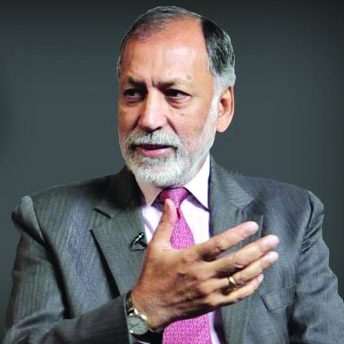
Pawar: opportunity not threat
Nevertheless, even as upskilling panic is spreading through India Inc and across every sector of the economy, Rajendra Pawar, promoter-chairman of the Gurgaon-based NIIT Ltd (estb.1981) — arguably India’s first IT skills upgradation company which has upskilled and certified over 35 million personnel worldwide, advises that there’s no cause for panic in the new AI and IT 4.0 age.
“People, especially youth, should view the new AI, ChatGPT and robotic age as an opportunity rather than a threat. Those who embrace revolutionary new technologies willingly by upskilling themselves are likely to succeed. This is likely to be India’s century. We have several advantages — the world’s largest population of eager and quick-to-learn children and youth and a large number of edtech, fintech and digitisation companies — including NIIT — which can meet the rising demand for upskilling. We should seize this opportunity and invest in skilling our population, it’s not as difficult as it seems,” says Pawar, who as promoter-CEO of NIIT, played a major role in skilling India in the IT 1.0 era in the 1980s when the computer age dawned and threatened to turn industry topsy-turvy, and is “quite prepared to do it again”.
In the circumstances with a rising number of public and private VET education providers of varying quality having mushroomed across the country in response to public demand, the best option available to quickly upskill India’s children and youth is for schools to faithfully implement the National Education Policy (NEP) 2020 directive to introduce VET programmes for children from class VI onwards as a long-term solution.
Meanwhile to upskill the huge number of unemployable youth whiling away their time in an era when there is large and unmet demand from industry, agriculture and the service sectors for skilled personnel, the best option is to introduce a national skills voucher programme under which any youth can avail of VET at a certified institute of her choice.
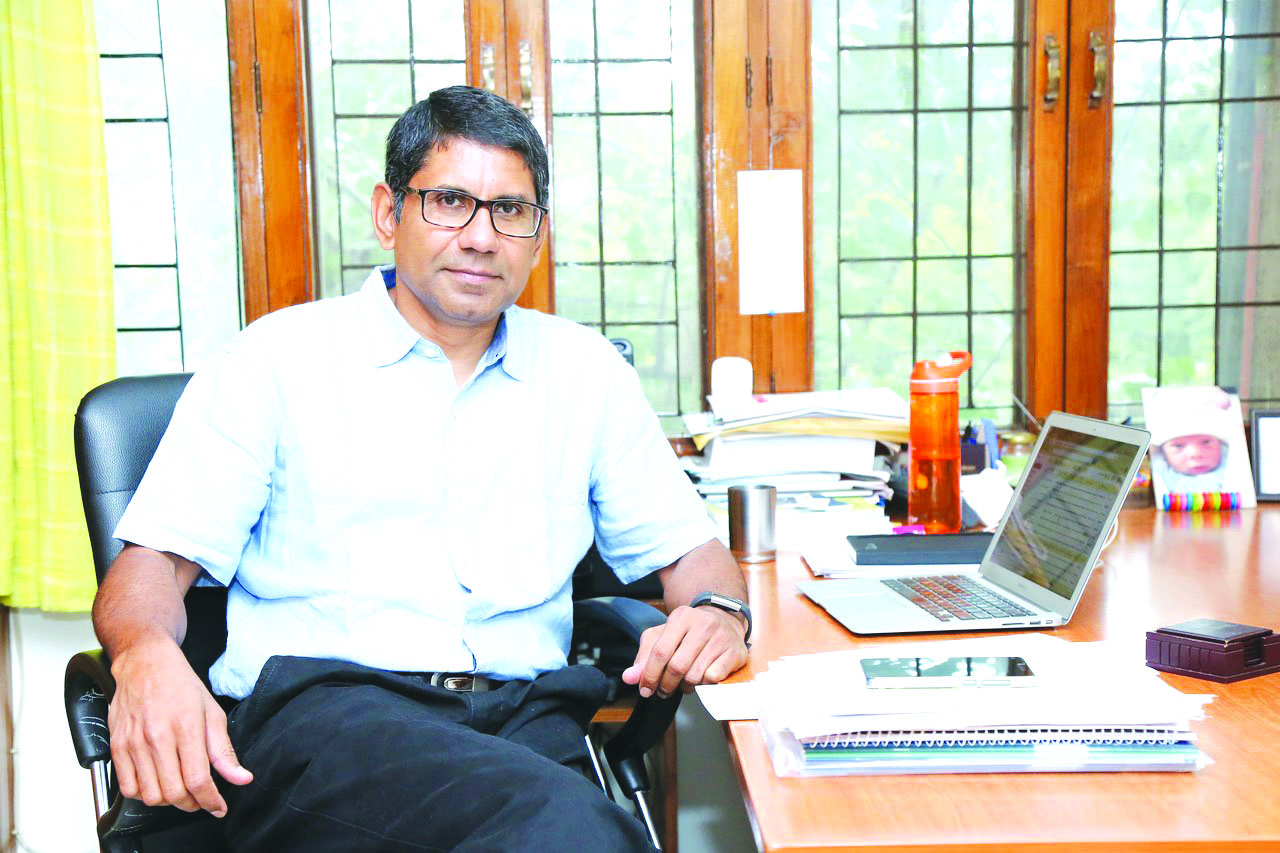
Shah: skill development vouchers option
This option was outlined by Dr. Parth Shah, former professor of economics at Michigan University and promoter-director of the Centre for Civil Society, a highly-respected Delhi-based think tank and research associate Leah Verghese, in an essay written for EducationWorld over a decade ago (January 2011). According to the authors, several countries have implemented the skills voucher programme successfully. For instance, Kenya under its Jua Kali Vouchers programme grants vouchers to business enterprises to upskill their employees. The programme is targeted at MSMEs (micro, small and medium enterprises) to enable them to improve the quality of their workforce.
“A skill voucher is an instrument given to an individual or an enterprise (by government) which enables the recipient to sign up for VET from any accredited skills education institute. Payment for tuition is made with the vouchers with top-up contributions (if necessary) made by the student/learner. Once training is completed, the accredited institution redeems the voucher (from government),” wrote Shah and Verghese (see https://www.educationworld.in/great-potential-of-skill-vouchers).
With students and working professionals spooked by disruptive high technologies and new power tools and equipment, there’s a discernible upskilling fever running through all sectors of the economy. The advantage that contemporary India enjoys over all other nations worldwide is its young, eager and quick-to-learn population. The demand for new skills to do new jobs is manifest and rising. Yet as usual, constraints and road-blocks are on the supply side of this newly-emergent equation.
With misguided expenditure priorities — high establishment expenditure, middle class subsidies, interest payouts and persistent fiscal deficits — of the Central and state governments, the push for upskilling the world’s largest and most high-potential youth population has to come from industry. This is a necessary precondition for the survival and prosperity of India Inc in the new hi-tech age driven by global hyper-competition.
Government skilling initiatives
The Union ministry of skill development and entrepreneurship (MSDE) was established in May 2014 by the BJP government, soon after it won a decisive mandate in the General Election, to co-ordinate “all skill development efforts across the country” and achieve the vision of a ‘Skilled India’. Since then, MSDE has initiated several skilling programmes delivered through several “functional arms” including the Directorate General of Training (DGT), National Council for Vocational Education and Training (NCVET), National Skill Development Corporation (NSDC), National Skill Development Fund (NSDF), 37 Sector Skill Councils (SSCs), 33 National Skill Training Institutes (NSTIs), 15,000 Industrial Training Institutes (ITIs) and 187 training partners registered with NSDC.
MSDE’s major programmes and initiatives include:
Pradhan Mantri Kaushal Vikas Yojana (PMKVY). Launched in 2015, MSDE’s flagship scheme (now in its 4.0 version) has three components: provision of free-of-charge short duration skills training in PMKVY Partner Training Centres; recognition of prior learning wherein individuals with prior learning experience or skills are assessed and certified; and Special Projects to facilitate training in special areas and/or premises of government, corporate or industry bodies. According to MSDE, 13.7 million youth have been trained and 11 million assessed and certified for prior learning through a network of 693 training partners countrywide.
Pradhan Mantri Kaushal Kendra (PMKK). Under its Skill India Mission, MSDE claims to have established state-of-the-art training centres in every district of India — PMKK — to provide high-quality industry-driven courses with focus on employability. This is done through the public-private partnership model. NSDC provides funding support through secured loans up to a maximum of Rs.70 lakh per PMKK. Thus far, 812 PMKKs have been sanctioned in 36 states/UTs; covering 707 districts and 540 Parliamentary Constituencies (PCs) of India. Of them, 738 PMKKs are already operational.
Upgradation of ITIs. Over 400 government industrial institutes have been upgraded under the World Bank assisted Vocational Training Improvement Project and 1,396 through PPP (public-private partnership) model.
Scheme of polytechnics. The Union government has provided direct assistance (Rs.12.3 crore per polytechnic) to state governments/Union territories to promote 300 new polytechnics in un-served and underserved districts. Moreover, financial assistance is provided to upgrade infrastructure facilities of 500 existing polytechnics (Rs.2 crore per polytechnic).
Craftsmen Training Scheme. Training courses under Craftsmen Training Scheme are being offered through a network of 14,930 ITIs (3,227 govt. and 11,702 private) across the country with capacity to train 2.65 million personnel.
National Apprenticeship Promotion Scheme (NAPS). Launched in August 2016, this scheme promotes apprenticeship training by providing stipend support (Rs.1,500 per month) to apprentices for on-the-job training. Thus far, 1.3 million apprentices have enrolled under NAPS. Last July, instead of reimbursement of stipends to the company, the Central government has proposed to transfer the amount to the bank account of apprentices under its Direct Benefit Transfer (DBT) scheme.
Skill Loan Scheme. This scheme (launched in 2015) provides bank loans (Rs.50,000-1.5 lakh) to students admitted into a course run by ITIs, polytechnics, government recognised college/university, and training partners affiliated with NSDC. The scheme does not require collateral to be provided from the beneficiary.
National Skill Training Institutes for Women (NSTIWs). Eleven NSTIWs countywide provide vocational training courses to women in office management, electronics, secretarial practice, architecture, computer, dress making, cosmetology, fruits and vegetables processing, desktop publishing, fashion design, etc.
School education. NSDC is working in collaboration with the Union ministry of education to restructure the implementation model of skill development training in schools from the four-year (entry in class IX and exit in class XII) to two-year model (entry in class IX and exit in class X; again entry class XI and exit at class XII). Training for 73 job roles across 21 sectors will be offered in schools.
These are well conceptualised and designed programmes, but their budgets are too meagre and prone to leakage.
The demand for new skills to do new jobs is manifest and rising. Yet as usual, constraints and road-blocks are on the supply side of this newly-emergent equation























